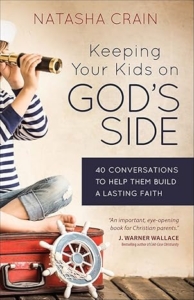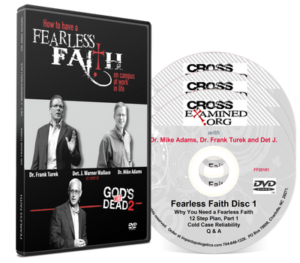By
I don’t normally write just to moms—my readers are both moms and dads—but in honor of Mother’s Day this one is specifically for all the moms out there.
For the past few days, I’ve been sick with some kind of flu/cold combination.
Yesterday, I pulled myself out of bed while feeling like I had a thousand pounds on top of me. As every mom knows, being sick doesn’t exempt you from getting the kids to school. So, I plodded down the stairs in my signature “I’m sick” robe and went to work making lunches.
After I finished making a hot dog and beans concoction, my daughter informed me she left her lunchbox at school…which had her thermos in it. The thermos was the only container that would have worked for what I had just made. I had to start all over and quickly get a sandwich together instead.
In stomped my younger daughter, who was devastated that she went to bed the night before with three braids in her hair, yet didn’t have the waves she hoped for in the morning. She blamed me for not braiding correctly and, in a huff, accidentally knocked a full glass of water all over the floor.
Not to be outdone, my son yelled from upstairs that he didn’t have a clean uniform to wear.
It was like the opening scene of a bad 1980s sitcom about wacky family life.
Rather than laugh, however, I lost it. I wasn’t sure if I felt more like yelling or crying, so it all just came out at once. But in the midst of the pandemonium, I suddenly had this thought:
This is the kind of day that makes moms think the stuff I write about is impossible to do.
Teach my kids how we know the Gospels are based on eye-witness testimony? I can’t even get lunch right.
Engage in nuanced conversations about evolution? My son doesn’t even have a clean shirt.
Discuss the evidence for God’s existence? My daughter just wants wavy hair.
Whether we’re sick or just getting through a normal day, it takes a lot to keep the family ship moving. When you’re already overwhelmed by daily life, reading my blog and/or book may seem like a giant “piling on” of what else should be happening.
If that’s how you feel, this post is for you. Here are the four things I think overwhelmed moms most need to hear.
1. We don’t have to be perfect parents before we’re ready to seriously disciple our kids.
Logically, you know this. You know that no human is perfect, and therefore you’re not perfect. But sometimes we subconsciously think that we need to achieve some critical mass of parental goodness (like not flipping out every time our kids leave socks all over the house) before we can begin to approach the “next level” of parenting—serious discipleship. Deep conversations about faith, not just mealtime prayers.
The thing is, that kind of discipleship is not the next level. We often inadvertently see it that way because it’s not necessary in order to keep kids physically alive, but that’s dangerous thinking. We need to adjust our mentality to accept that serious discipleship keeps our kids spiritually alive and is foundational level parenting.
Take this to heart: You are enough. In all your imperfections, God still calls you to be the most important spiritual influence in your kids’ lives.
2. The challenges of a secular world are not a giant, undefinable snowball—they are predictable, making your job manageable.
When you’re scrolling through social media, reading articles, listening to the television, and so on, it can seem like you’re on the receiving end of a secular avalanche. You may see the latest crazy news and feel like it’s an impossible task to prepare your kids spiritually for all they’ll encounter. Where do you even begin?
But hear me out: Virtually all of those challenges in some way roll back to questions about the core case for Christianity:
- The evidence for God’s existence.
- The exclusive nature of religious truth claims.
- The evidence for Jesus’ resurrection.
- The evidence for the reliability of the Bible.
You don’t need to feel like you have to be an expert on every single challenge you encounter. If 500 people challenge you on 500 different claims that oppose what the Bible says, that’s primarily just one subject area you need to grasp: What is the evidence for the reliability of the Bible?
If you’re new to these subjects, grab a copy of my first book, Keeping Your Kids on God’s Side. It’s an easy-to-understand introduction with mercifully short chapters for parents. For other resources, check out all the reading plans I have here.
Preparing your kids for a secular world is manageable when you make use of resources to help you get focused on key areas. You just need to make the time.
3. You have the needed time. Really. You do.
When I speak to parents at churches and conferences, I often start by showing a picture of my family from five years ago. My twins were three and my youngest was one. I say, “When this picture was taken, I didn’t know anything about anything I’m talking about today.” I want parents to know anyone can equip themselves with this understanding when they put their mind to it.
But it comes down to this: I made time to learn once I experienced first-hand how important this knowledge would be for my kids. (If you’re newer to my blog, you can read my story here.)
I read some 200 books during that time, with three kids under five. When did I do it? Times like these:
- The first 15 minutes after I woke up in the morning.
- While drying my hair (if you read books electronically, this is easy to do).
- While waiting in lines (do you know how much time you spend in lines at places like the grocery store?).
- While waiting for my kids to be done with extracurricular activities (e.g., gymnastics).
- While waiting for dinner to cook.
- In the last 15-30 minutes before I went to sleep at night.
When something is important, you make time. You just do. And I’m not even suggesting you read 200 books. Read these 5 to start and see where that takes you.
4. Your kids’ failure to show interest in deep conversations is not your failure.
Let’s say you’ve taken all this to heart, gotten up to speed on a variety of important subjects, and are ready to give your kids a big shot of knowledge for their secular immune system. You pick a night to start a discussion…and your kids couldn’t be less interested. They’re inattentively rolling around on the floor, hitting each other, insulting each other, rolling their eyes, or flat-out asking, “Why do we have to do this?”
It can feel like the ultimate failure.
But it’s totally normal.
I’ve had lots of nights like this, and they make you want to stab your eyes out. I know. It doesn’t mean you’re doing something wrong. It means your kids are…kids.
Don’t get discouraged and turn it into an excuse to go back to basic survival mode. Expect it. And press on (just maybe not that night). It’s the consistency of conversations over time that will make the greatest impact on your kids’ faith.
Original Blog Source: http://bit.ly/2qJdy68








 COLD-CASE CHRISTIANITY FOR KIDS
COLD-CASE CHRISTIANITY FOR KIDS FEARLESS FAITH SEMINAR
FEARLESS FAITH SEMINAR
 INFILTRATION OF THE NEW AGE
INFILTRATION OF THE NEW AGE
 I DON’T HAVE ENOUGH FAITH TO BE AN ATHEIST
I DON’T HAVE ENOUGH FAITH TO BE AN ATHEIST INTELLECTUAL PREDATORS: HOW PROFESSORS PREY ON CHRISTIAN STUDENTS
INTELLECTUAL PREDATORS: HOW PROFESSORS PREY ON CHRISTIAN STUDENTS
 HELL? THE TRUTH ABOUT ETERNITY
HELL? THE TRUTH ABOUT ETERNITY THE GREATEST STORIES EVER TOLD: EP 04 – THE PARABLE OF THE RICH MAN AND LAZARUS
THE GREATEST STORIES EVER TOLD: EP 04 – THE PARABLE OF THE RICH MAN AND LAZARUS
 http://bit.ly/2aNRP7F
http://bit.ly/2aNRP7F http://bit.ly/2aNSVjW
http://bit.ly/2aNSVjW